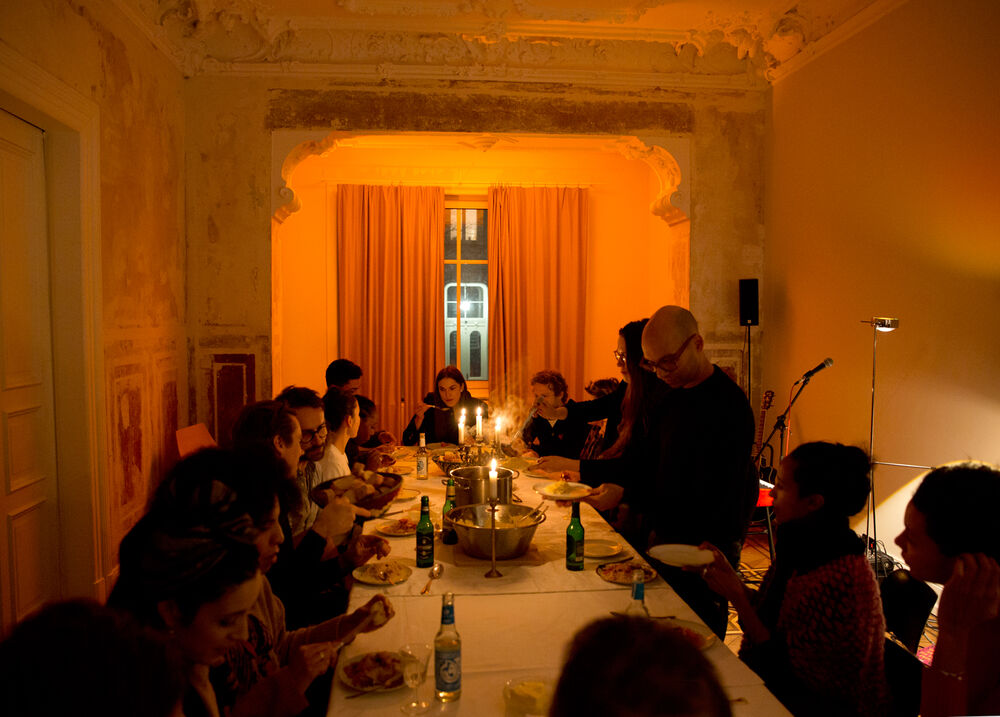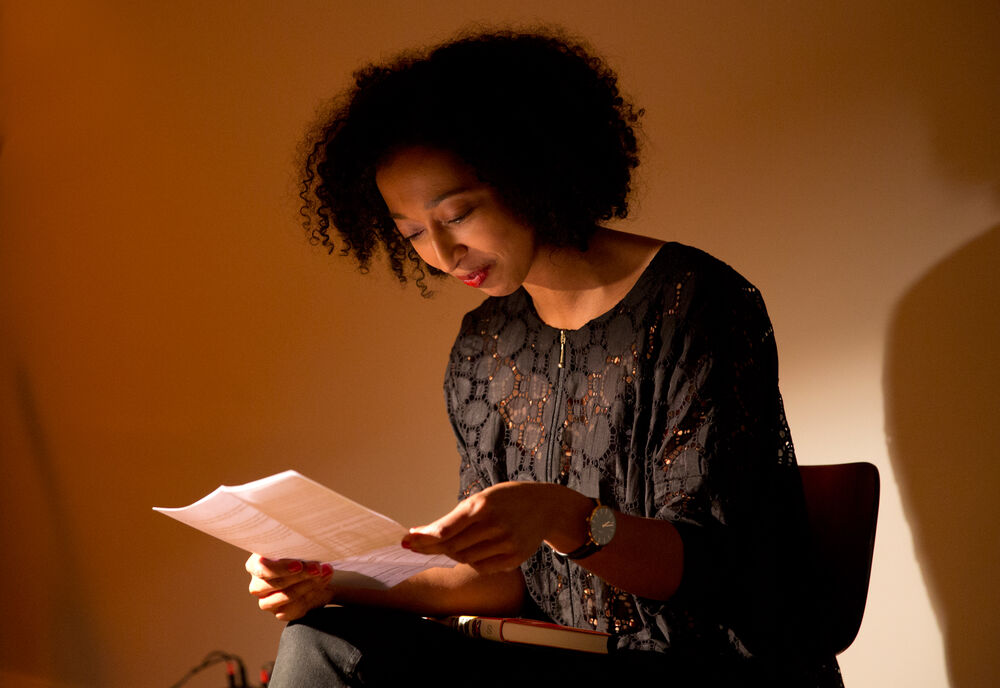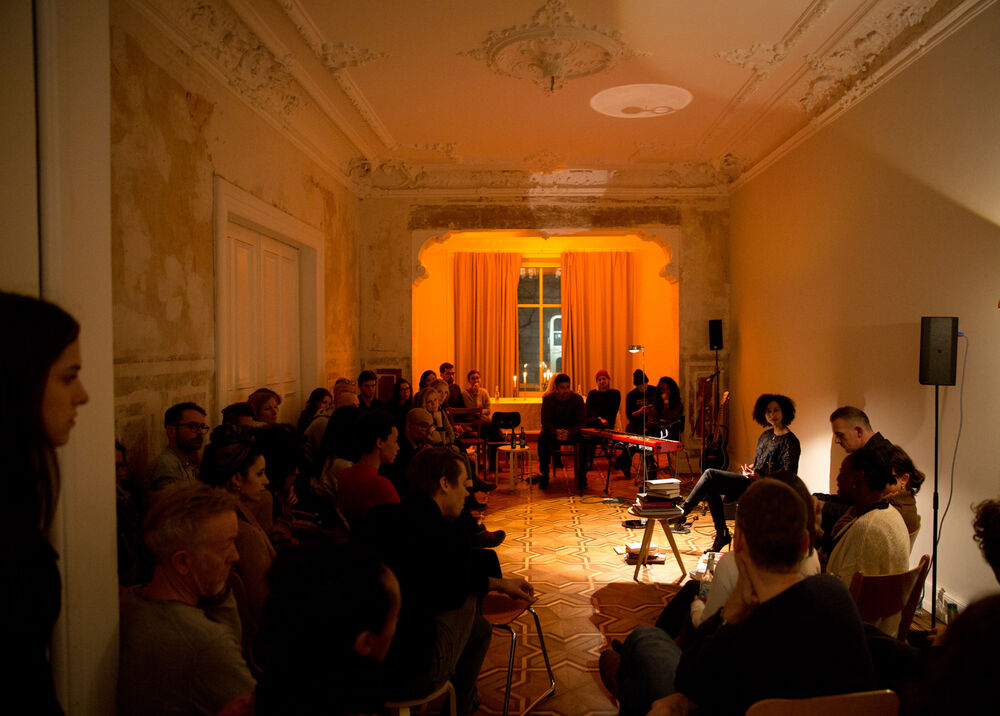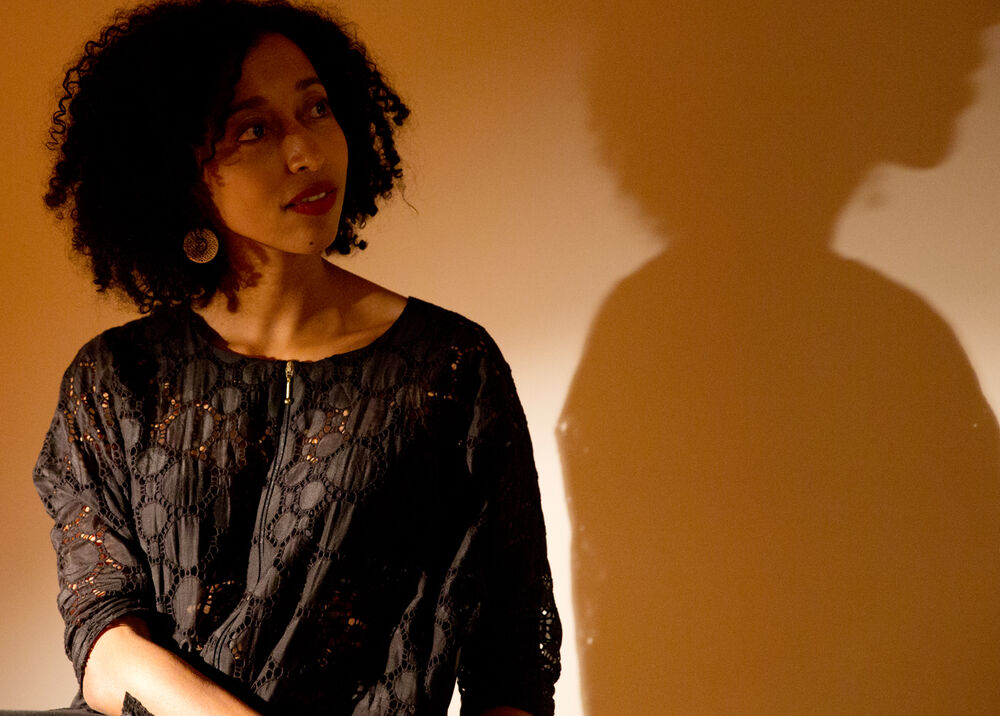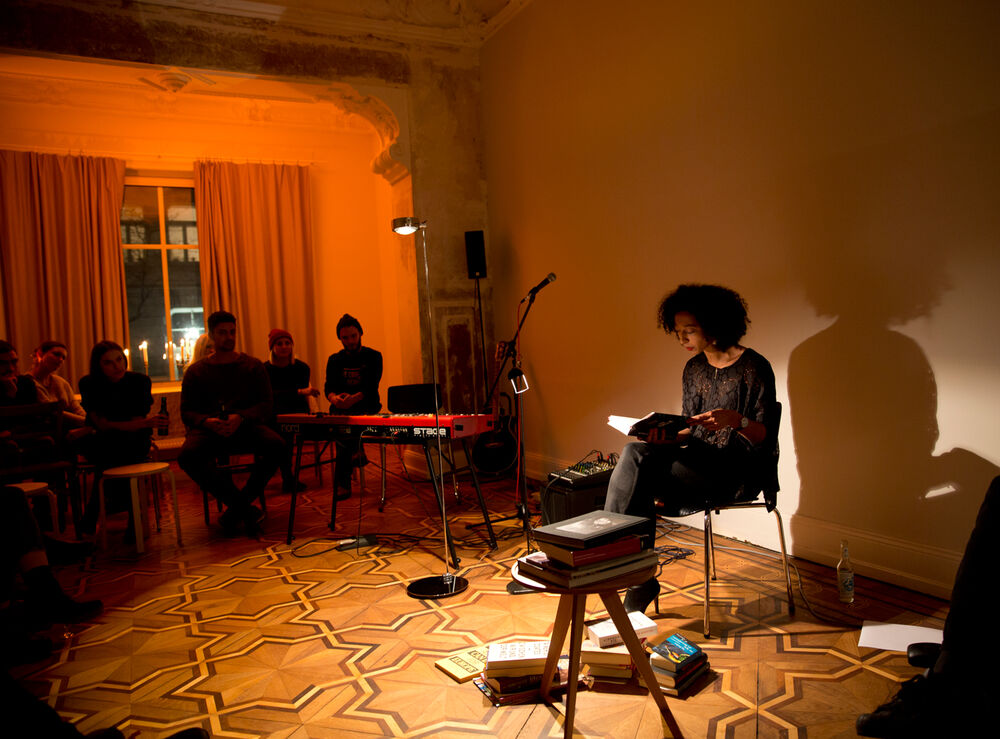Her debut novel is being filmed by Hollywood and sold into 21 countries. Early in the year bestseller author Melanie Raabe travels from Rhine to Elbe and presents us a beautiful evening filled with her own as well as African literature, with good talks and fresh thoughts.
Books of African authors, recommended by Melanie Raabe
Nii Parkes – Tail of the Bluebird (2009)
A remote village in Ghana: a forensic officer investigates the eerie discovery of a decaying piece of flesh. Is it human? His inquiries begin to clash with the traditional village commune: rational thinking and natural sciences are opposed by the powerful belief in mythical ancestry and faith in the inexplicable. “Tail of the Bluebird” tells an unusual crime story, one of a mysterious case and with exceptionally unique characters.
Chimamanda Ngozi Adichie – Americanah (2013)
With her novel “Americanah” Nigerian writer Chimamanda Ngozi Adichie has created a truly epic account of African culture and history across the globe. Identity, family, friendship, love, racism, vicinity, separation: the diversity of themes touched upon in this epos creates a uniquely narrative depth, which one could easily get lost in if it weren’t for Adichie’s elegant and playful writing style.
Fiston Mwanza Mujila – Tram 83 (2015)
Concepts of imagination and delusion have rarely been closer to one another than in “Tram 83” by Congolese novelist Fiston Mwanza Mujila. Set in a bar, in an unnamed African city, the reader follows a poet and his encounters with those trying to escape the harshness of urban life for a night: drunks and drug dealers, disillusioned dreamers and lost souls. A literary, almost rhythmical journey into a world full of power, poverty, sex, violence, music and poetry.
Yvonne Adhiambo Owuor – Dust (2014)
When her brother is shot dead in the streets of Nairobi, Ajany has to return to her home country. Traumatized over their loss, the family reunion unravels long forgotten secrets from the past while depicting the devastations of a torn and struggling nation. “Dust” does not simply tell the story of a mourning family, but drags the reader along on a merciless yet gentle path into Kenya’s past and present.
Warsan Shire – Teaching My Mother How To Give Birth (2011)
When Beyoncé used her work for her visual album “Lemonade”, Warsan Shire rapidly gained attention and popularity. The Kenyan-born poet often speaks of war and trauma, of love and jealousy, of growing old, of seeking and finding. She gives a voice to those who are seldom heard, refugees, immigrants, and fringe groups – using her unique narrative language, powerful and feminine.
Helon Habila – Oil on water (2010)
Writer Helon Habila has been living and teaching in the US for the past years, although is literary mind has always been set on his homeland Nigeria. “Oil on Water” highlights the oil spill in the Niger delta. But instead of taking a neutral point of view, Habila creates an intimate encounter with the topic, delicately embracing choice of words and writing style. The intense discrepancy between his narrative and plot emphasises the magnitude of the ecological and human catastrophe.
Nuruddin Farah – Crossbones (2011)
“Crossbones” marks the end of Nuruddin Farah’s trilogy on his home country Somalia. A social novel picturing a country drowning in chaos, where everyday life is overshadowed by desperation, melancholia and menace. A story far away from light entertainment, but rather causing the reader a sense of the same agitation and unease, as Farah portrays not fictional but factual hopelessness and grief.
